歌碑11「越に五年」-勝興寺前緑地Monument No.11 “Five years in Etchū”-Little Park in front of Shōkōji Temple
2022年07月13日
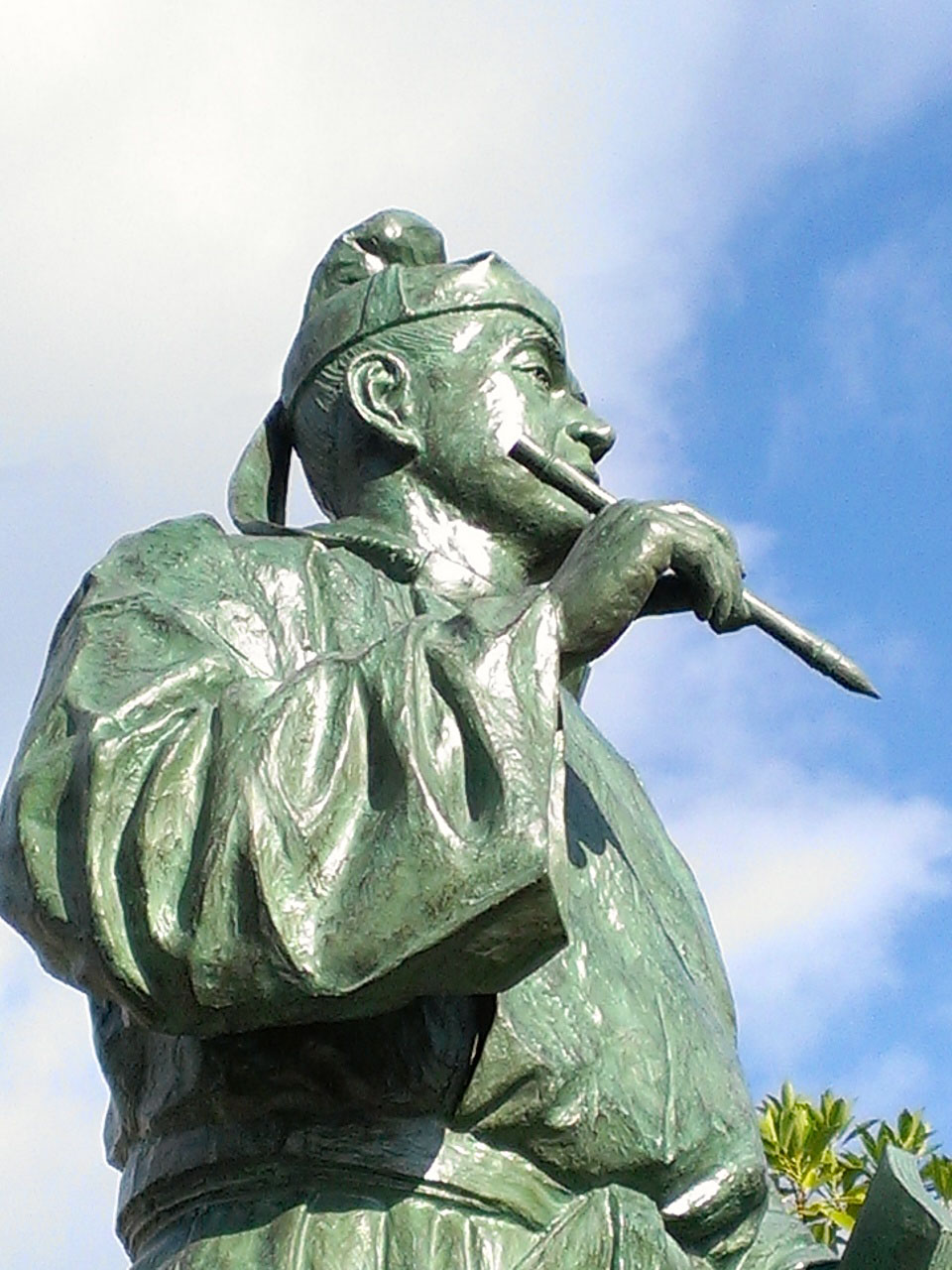
天平勝宝三年(751)八月、家持は国守の任を終えて都へ帰ることとなった。この歌はその直前に催された別れの宴で詠まれたもの。
In August 751, Ōtomo no Yakamochi was due to return to Nara, having finished his assignment as a regional governor. He composed this poem at his farewell banquet just before his departure.
![万葉歌めぐりの旅[Man'yōshū Literary Pilgrimage]](https://www.manreki.com/manyo-songs/images/common/pic_logo.svg)



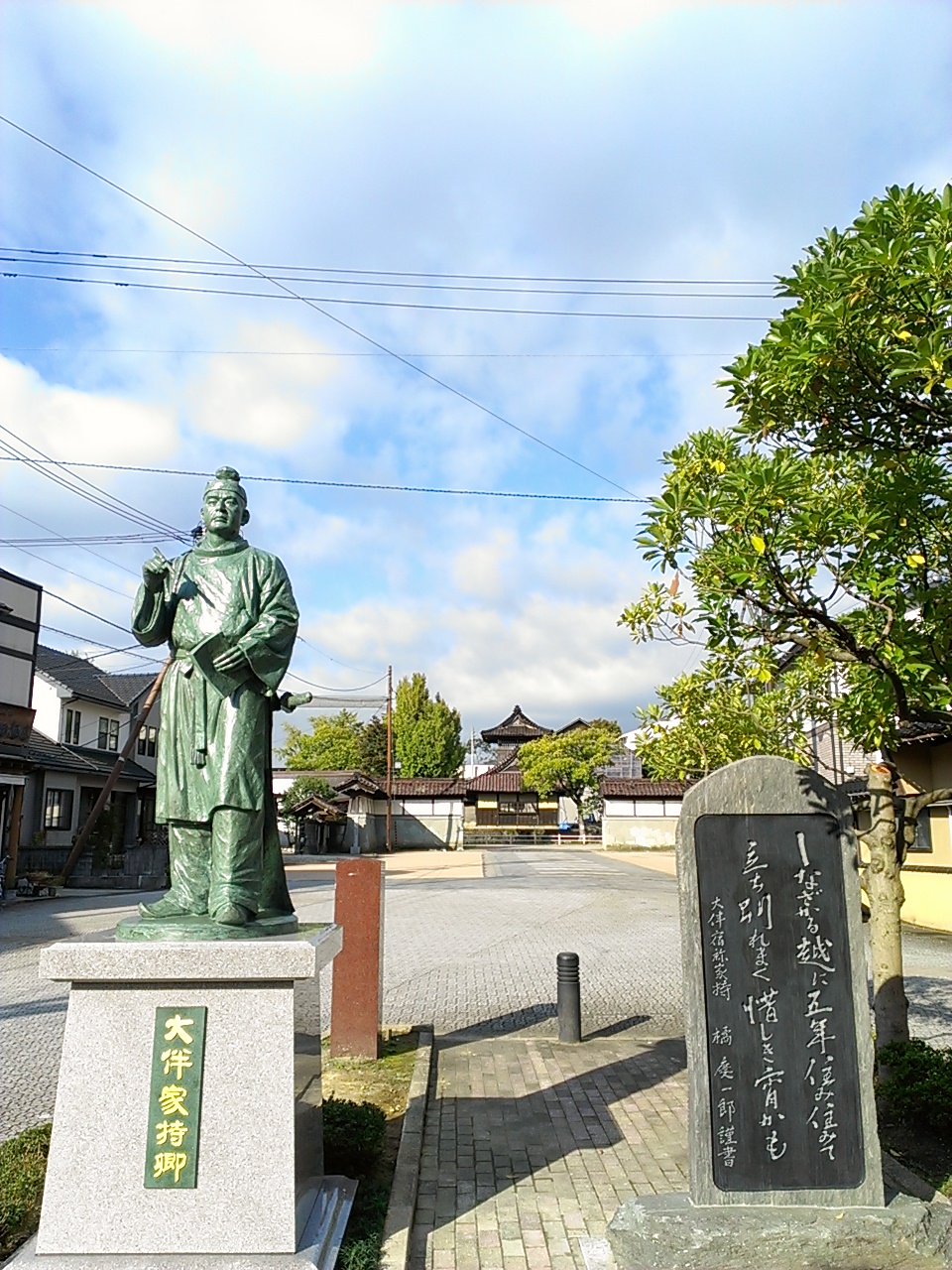
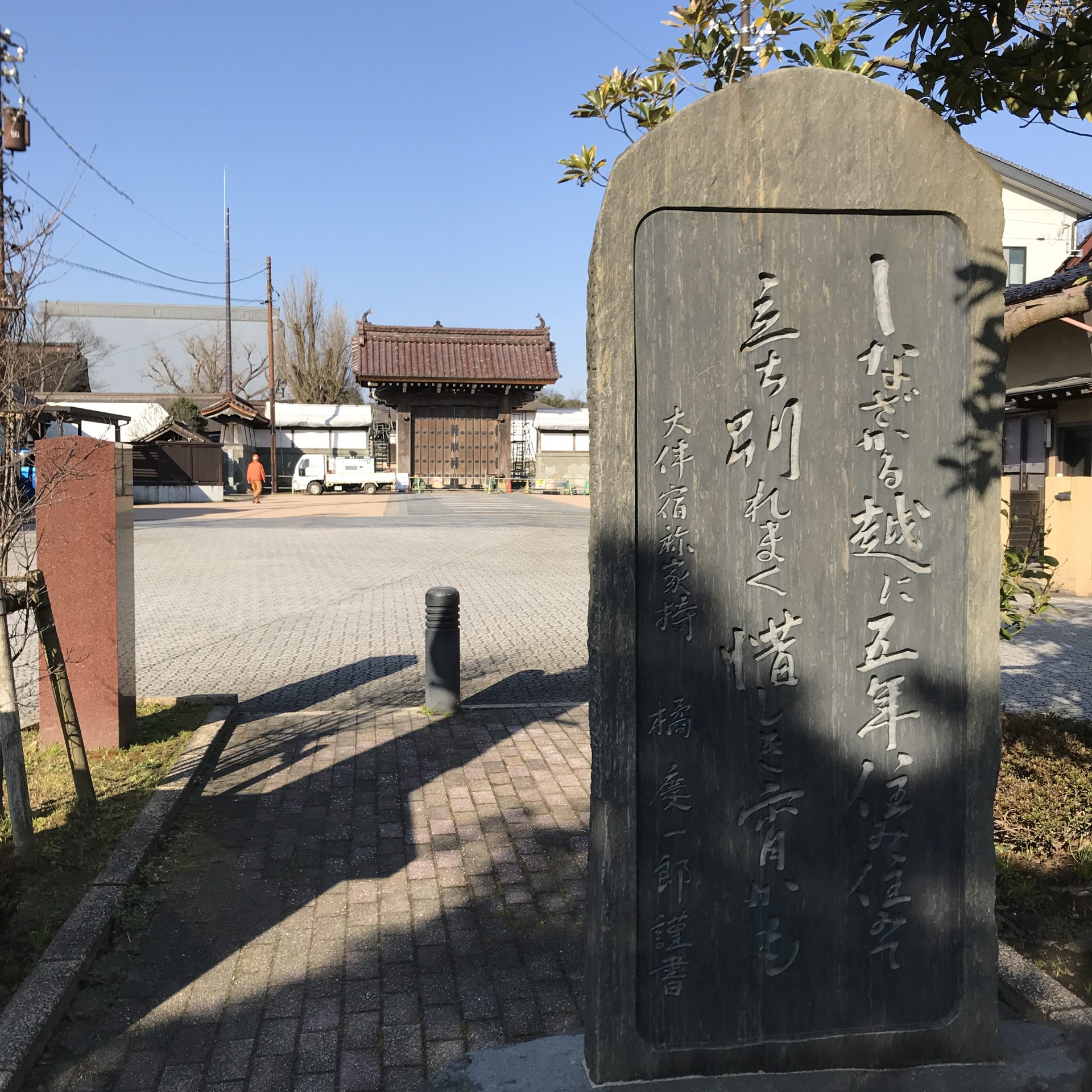
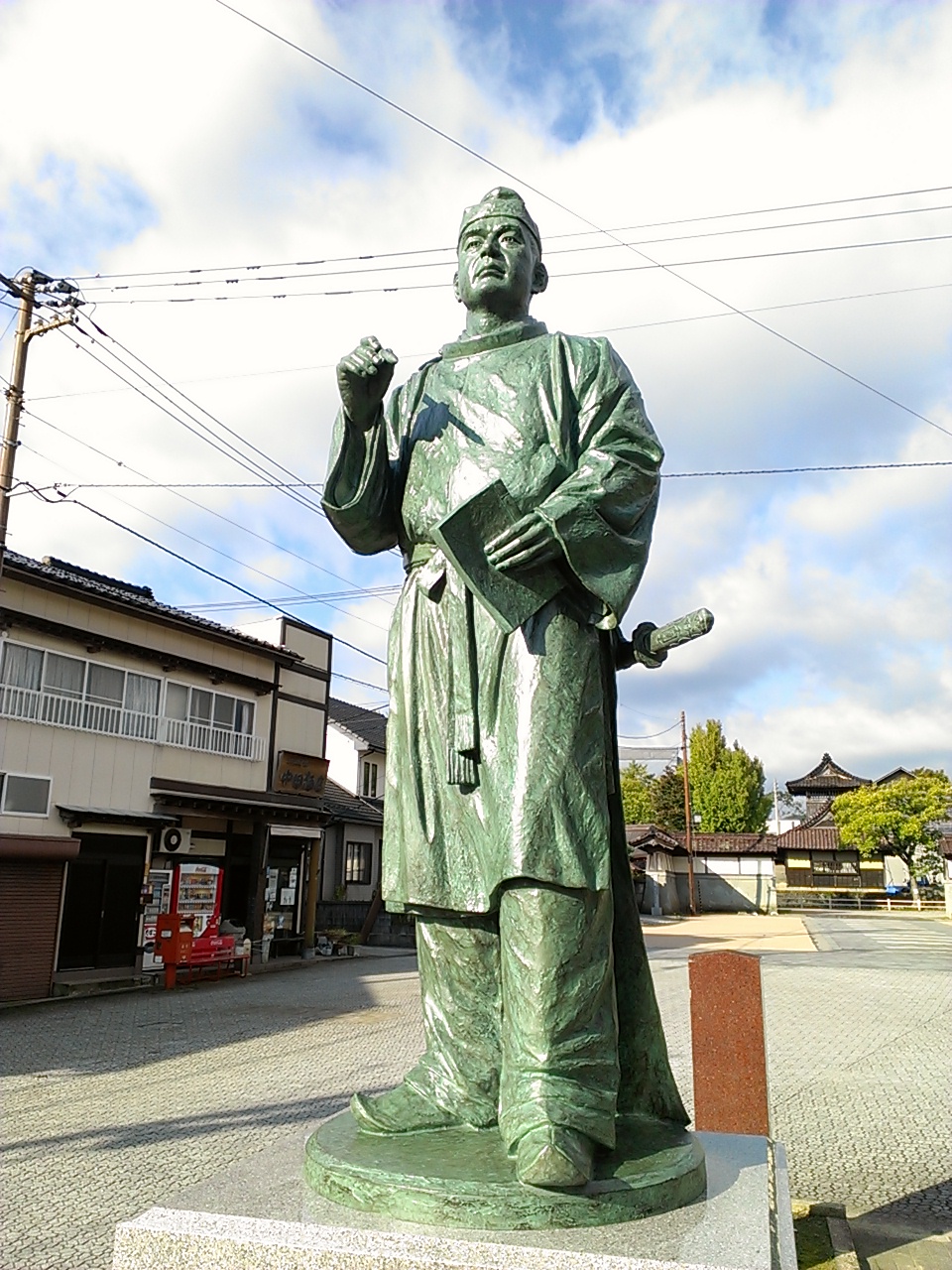
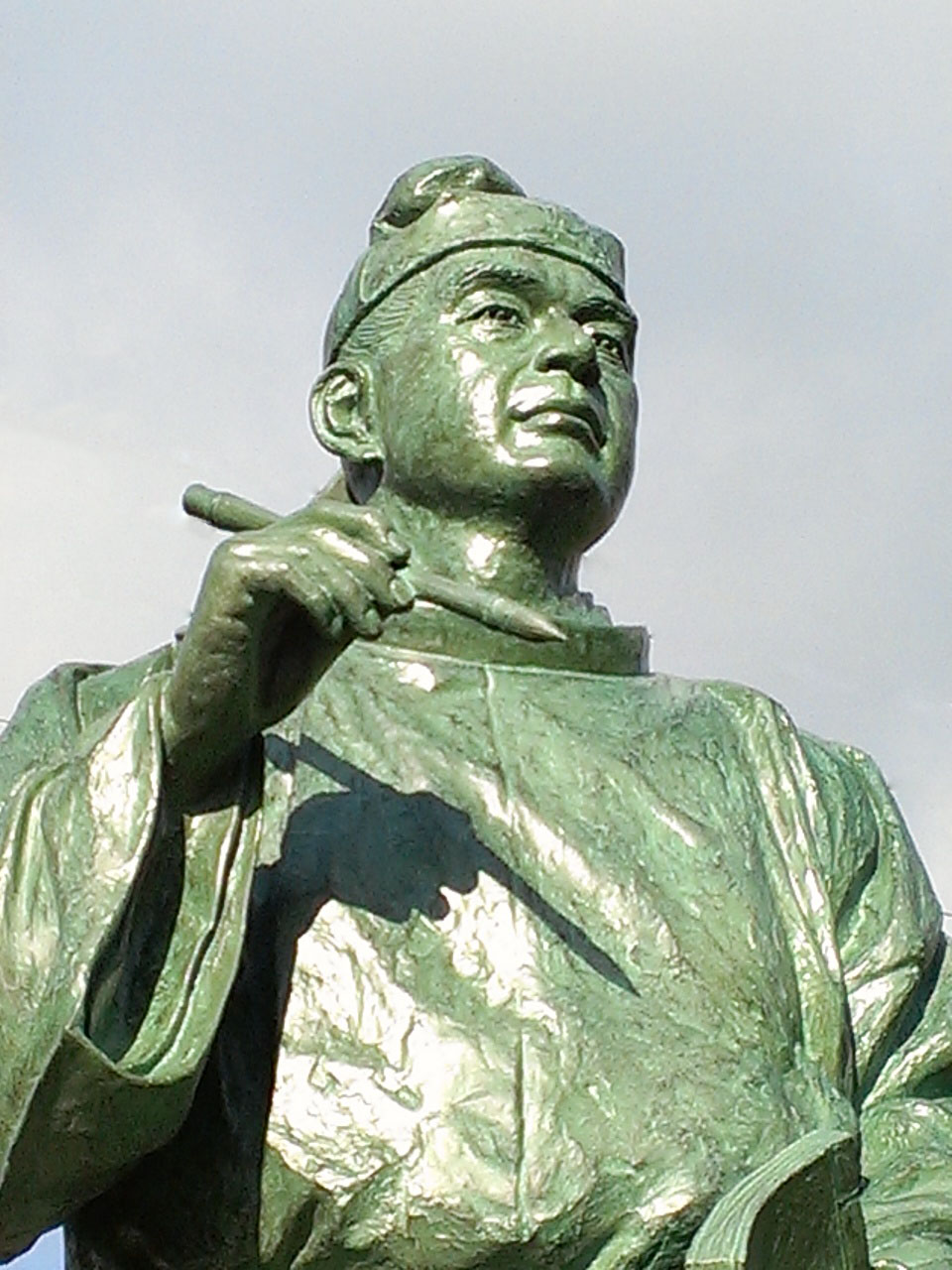
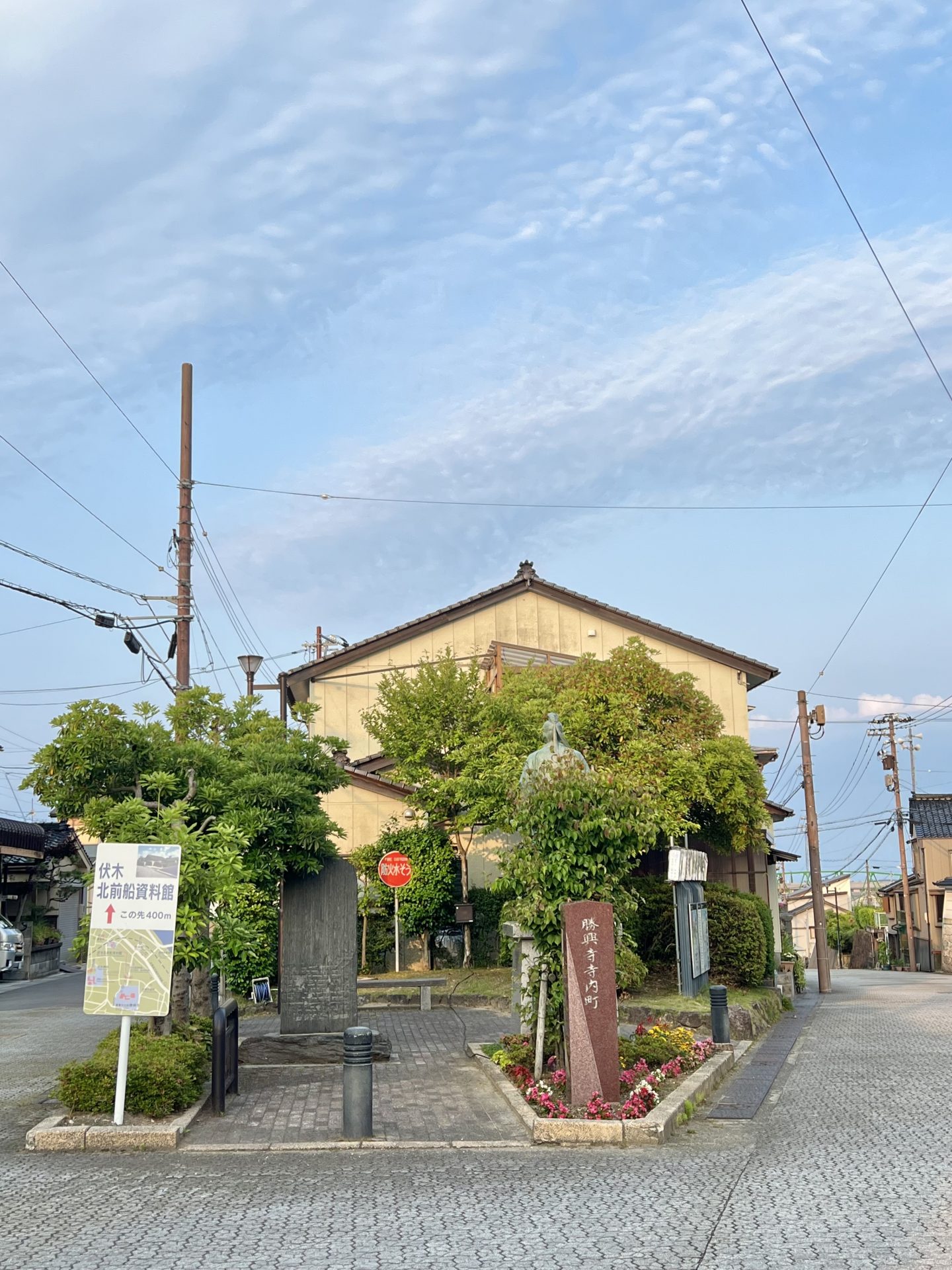
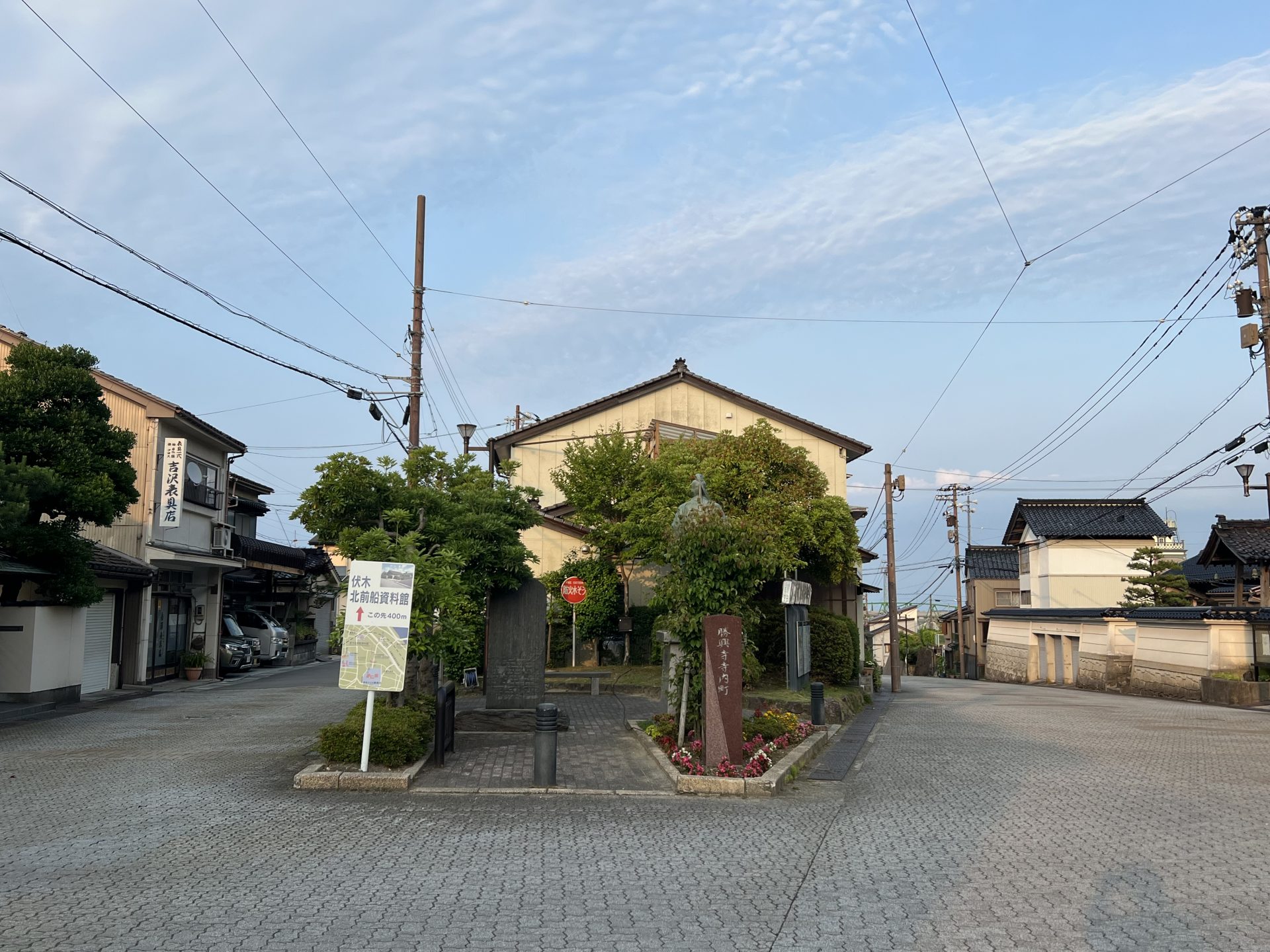
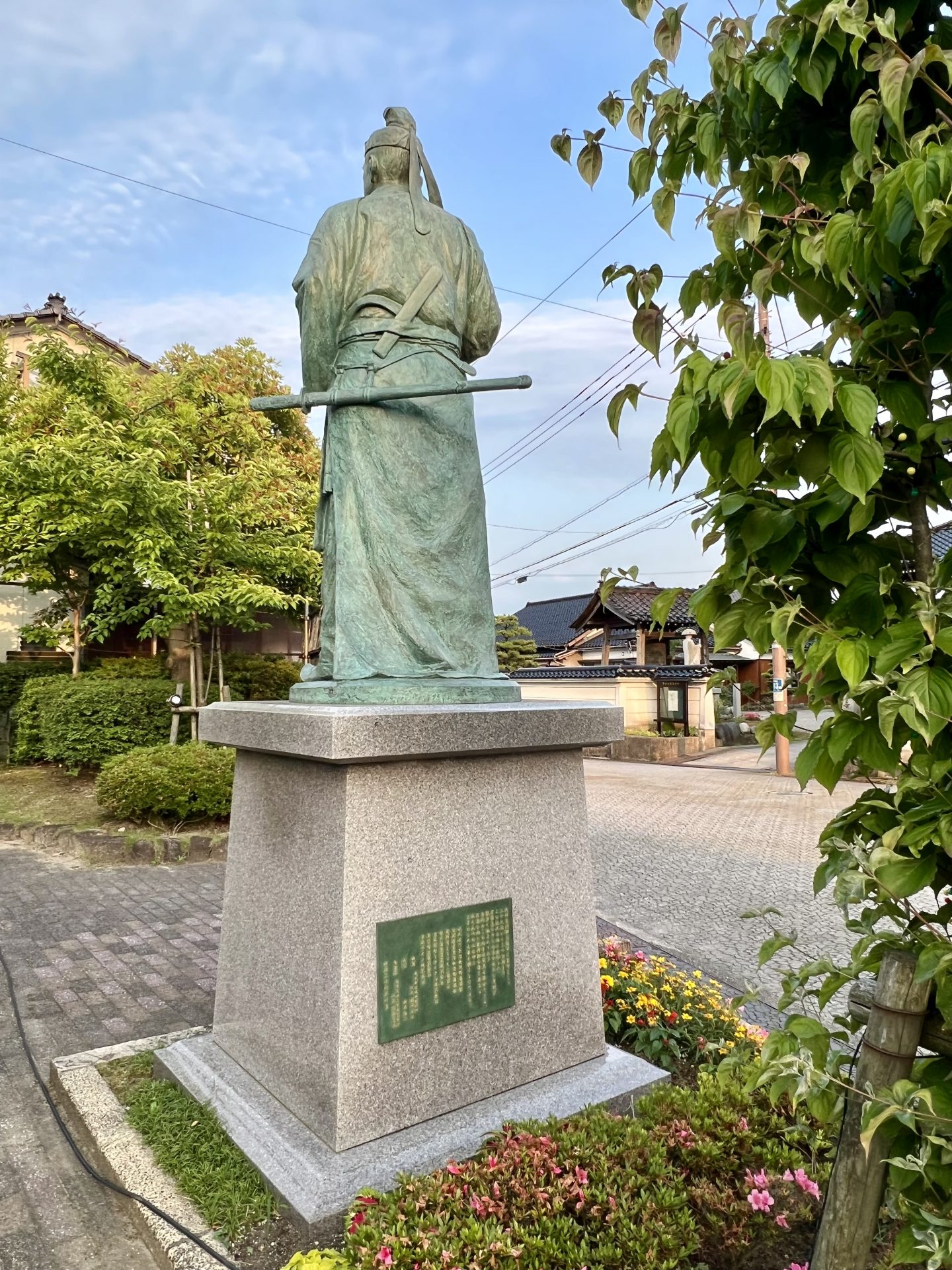

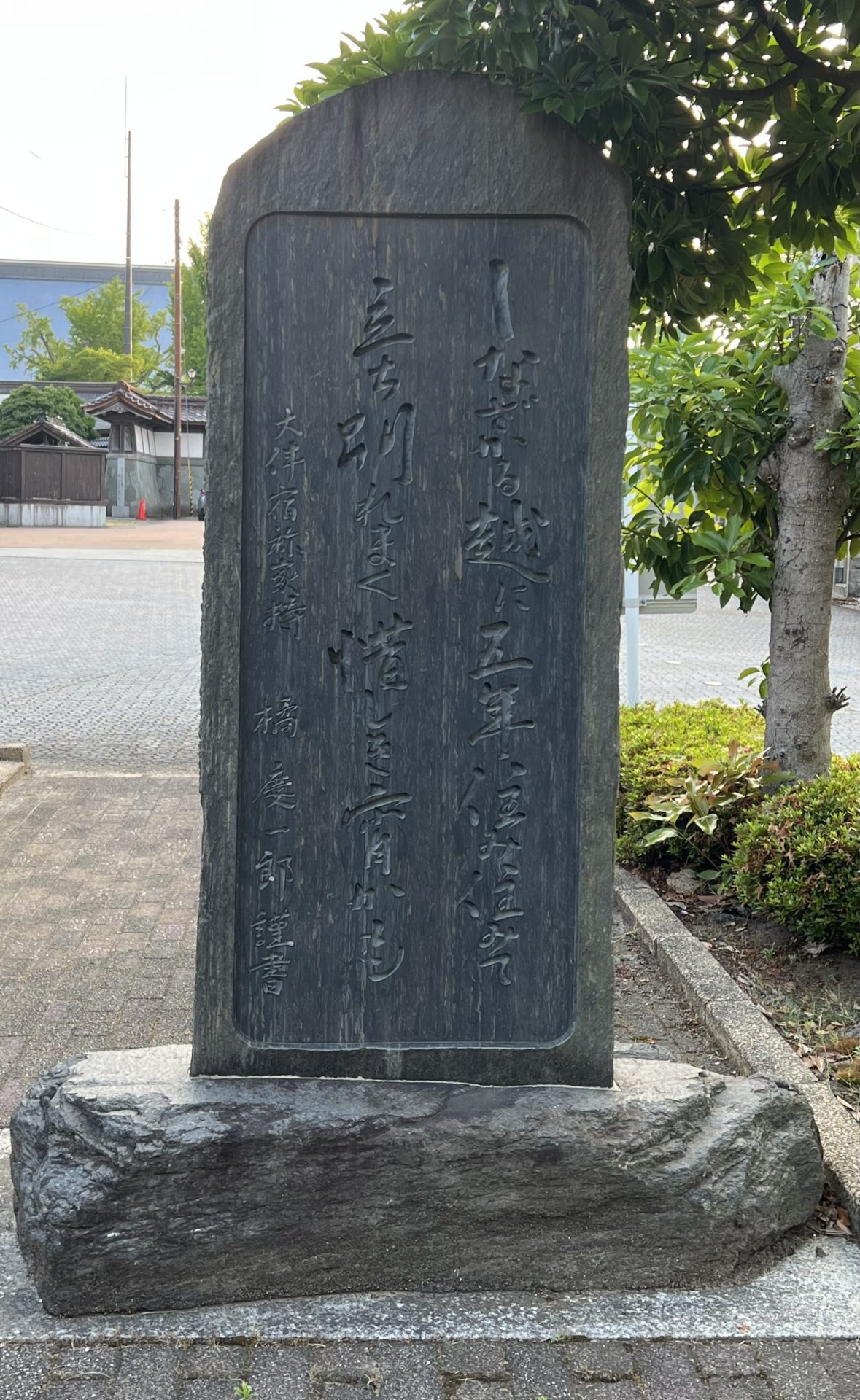

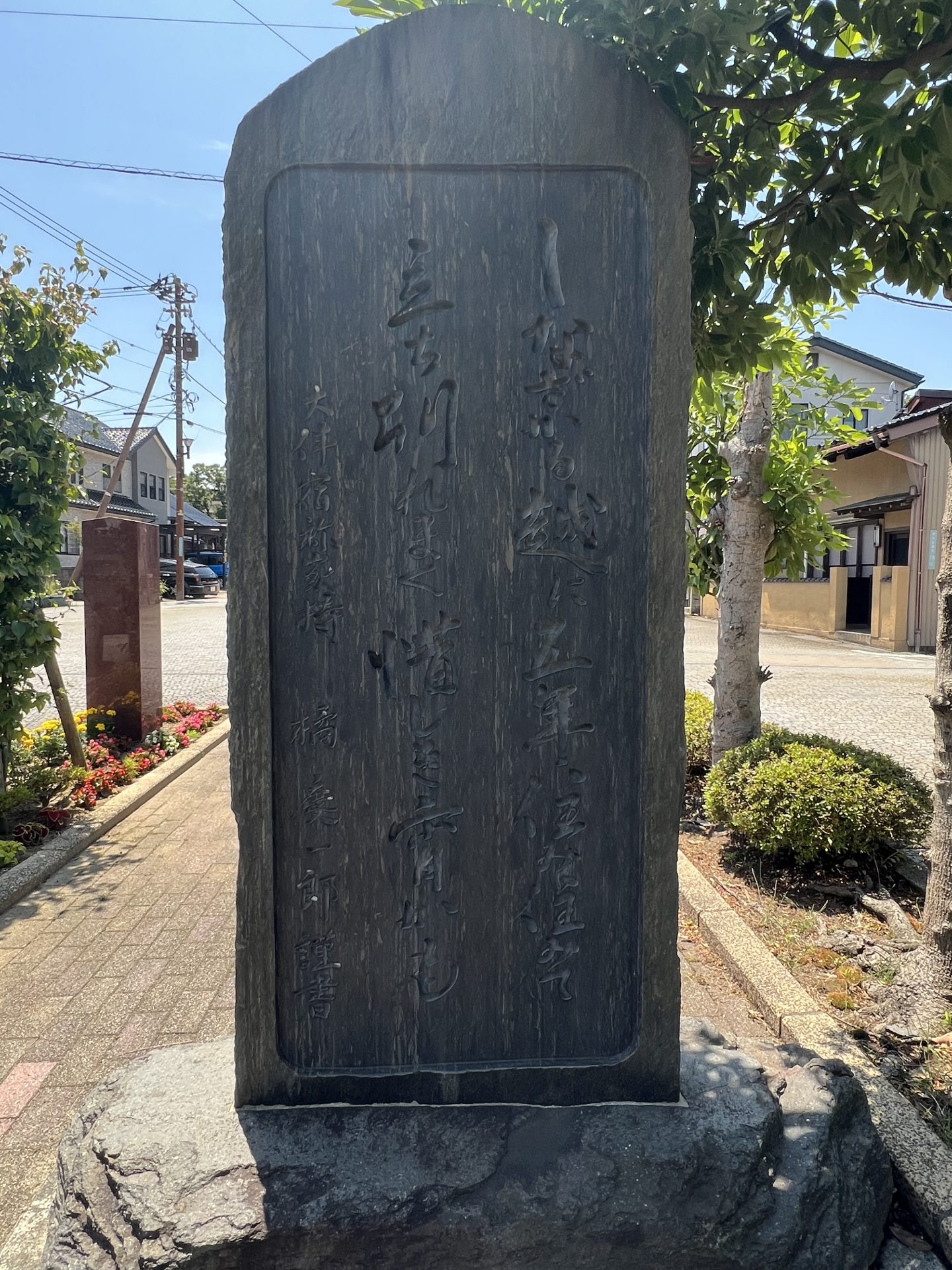





解説
Commentary
越に五年
Five years in Etchū
『万葉集』の4250番の歌。『万葉集』は、7世紀前半から8世紀後半にかけての約130年間の歌を収めた現存日本最古の歌集で、4500首余りの歌が収められている。この歌の作者は大伴家持(718?~785)、『万葉集』でも最も多くの歌を残す歌人である。
天平勝宝三年(751)八月、家持は国守の任を終えて都へ帰ることとなった。この歌はその直前に催された別れの宴で詠まれたもの。上の句は山上憶良(660~733?)の「天ざかる鄙に五年住まひつつ都のてぶり忘らえにけり」(巻5・880)という歌の上の句を踏まえている。
山上憶良は「子等を思ふ歌」や「貧窮問答歌」といった家族や社会を詠った作品でよく知られた歌人。憶良は筑前守として九州に赴任した際、家持の父である大伴旅人とも親しく交流している。しかし、歌に込められた心情は憶良の歌と家持の歌とでは真逆と言えるだろう。憶良の場合は筑前守としての長い田舎暮らしを憂い、都への帰還を求める思いを詠んでいた。
一方の家持の歌は今にも都へ戻ろうという時の歌であり、越中への名残惜しさを感慨深く詠んでいる。ただし、家持が越中で詠んだ歌には「都の大道し思ほゆ」(巻19・4142)と都を懐かしむものもあって、都に帰りたくなかったわけではないこともわかる。都への思いが溢れる憶良の歌を踏まえたのも、そのあらわれかもしれない。それでも、長い越中での生活で芽生えたこの土地やそこに住む人々に対する愛着が、この哀惜の歌を生んだのだろう。
非常にシンプルで明快な歌であるものの、憶良の歌を踏まえることで暗示される普遍的な故郷(都)への憧れとともに、長く住んだ別の場所(越中)への愛着もよく表現されている。
高岡市の勝興寺前公園、高岡市伏木古府(国道415号線沿い)に歌碑が立つ。
(解説 ピーター・J・マクミラン)
This is poem number 4250 of the Man’yōshū, the oldest existing collection of poetry in Japan. The Man’yōshū consists of over 4,500 poems and was compiled over a period of around 130 years, from the first part of the 7th century to the latter part of the 8th century. The author of this poem is Ōtomo no Yakamochi.
In August 751, Ōtomo no Yakamochi was due to return to Nara, having finished his assignment as a regional governor. He composed this poem at his farewell banquet just before his departure. The first three lines are based on a poem by Yamanoue no Okura (Book 5 poem no. 880), which reads: “It has been five years / since I moved to this distant countryside. / As life passed, / I have forgotten / the protocols of the capital (Amazakaru hinani itsutose sumaitsutsu miyako no teburi wasuraenikeri).
However, the theme of Yakamochi’s poem contrasts with that of Okura, which simply expresses his desire to return to the capital after spending a long time as the governor of Chikuzen Province. Yakamochi’s poem was composed just before his return to the capital and expresses instead his attachment to Etchū. Yakamochi’s poem emphasizes how sad he is to depart from his new home and implies that he has developed a deep attachment to the beautiful scenery and the people of Etchū during his long sojourn there. The poem is very simple and clear, expressing both the universal longing for one’s homeland and, at the same time, a parallel attachment to another place in which one has lived for a long period.
This waka poem stone monument stands at Takaoka City Fushikikofu (along National Highway 415).
(English Translation and Commentary by Peter Macmillan)